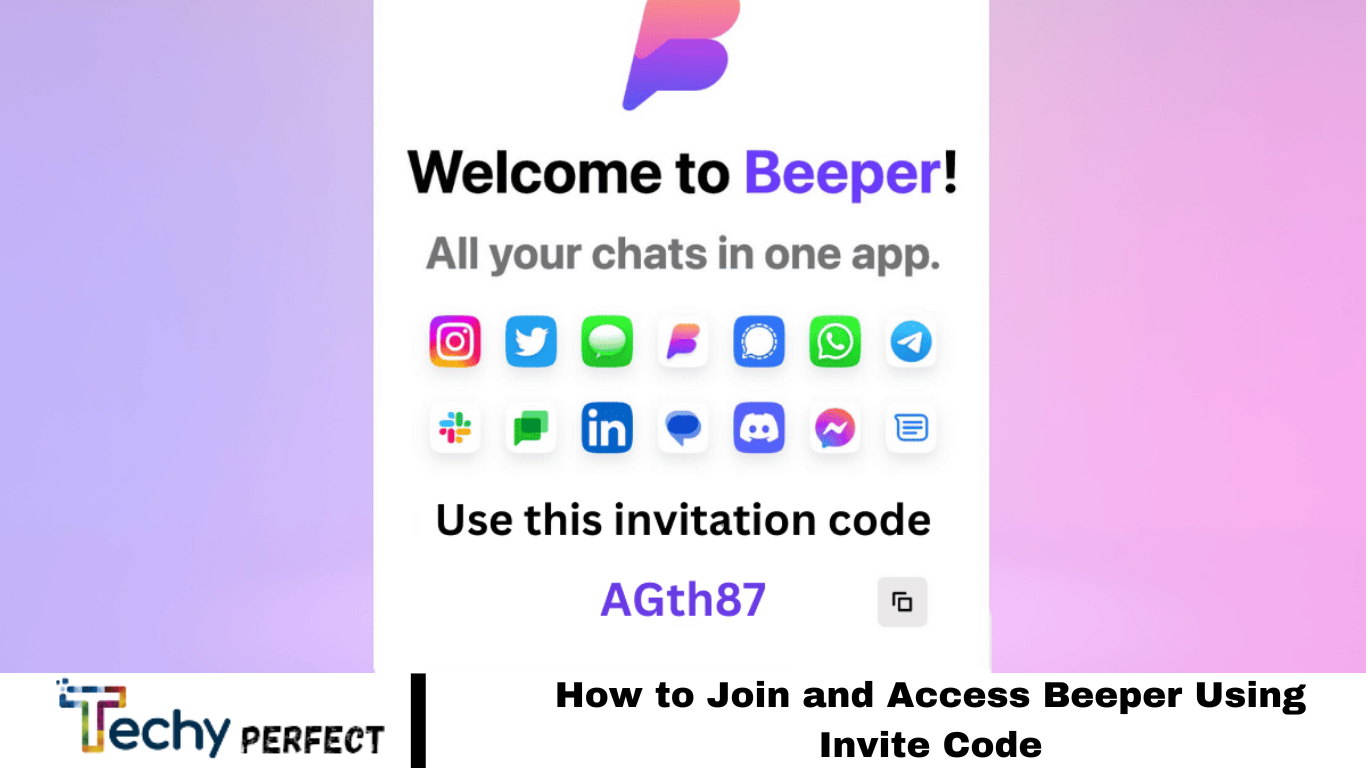Free Speech Ethical Alternatives to Twitter (2024)

Entering 2024, the digital sphere teems with substitutes for nearly every prevalent application. Users seek out platforms like X, which emphasize open dialogue, unrestrained discussions, and respect for diverse viewpoints. Rest assured, we’ve got you covered. This blog will unveil top free speech ethical alternatives to Twitter, transcending its constraints. Without delay, let’s dive in.
Best Ethical Alternatives to Twitter
Seeking genuine, private social media platforms with authentic online interactions, users increasingly explore alternatives to Twitter. The focus is on liberation from the conventional. Whether through email newsletters or platforms fostering creativity, these alternatives cater to diverse needs.
Read More: Fostering Positive Relationships with Customers Through Support
1. Reddit

For those permanently departing Twitter, Reddit emerges as a promising alternative. Boasting over 50 million active users, the platform facilitates sharing text, images, videos, and links. Its subreddits serve as niche communities catering to diverse interests, allowing users to engage with like-minded individuals. Unlike Twitter’s emphasis on individual profiles and content, Reddit prioritizes community building through interactive voting systems and diverse topic-based communities.
2. Bluesky

Leveraging the AT Protocol, BlueSky has garnered significant online buzz, mainly due to its innovative feature allowing users to browse without mandatory account creation or log in. Conceived by Jack Dorsey, it mirrors Twitter’s structure but incorporates distinct elements. Familiarities with Twitter encompass its feed, posts, likes, block lists, and mute options. Despite being in beta testing, BlueSky has already amassed over 1 million downloads on the Google Play Store, boasting a user base exceeding 3 million and an additional million users awaiting access.
3. Threads

Threads, Meta’s latest app integrated with Instagram, is a new contender in the Twitter alternative sphere. It curates posts from your followers and offers content suggestions. Users can choose to make their profiles visible to all or select individuals and control who can comment on their posts. Furthermore, Threads enables text updates with a 500-character limit and the option to share photos and videos up to 5 minutes in length.
4. Substack

Substack serves as a valuable resource for writers and readers, catering to various creators such as bloggers, podcasters, financial analysts, food enthusiasts, comic artists, and local journalists. With content delivered directly to followers via email, ensuring minimal chance of missing updates, Substack emerges as an ethical platform promoting free speech. Notably, creators can monetize their work through subscriber contributions, making it an attractive alternative to Twitter for creative endeavors.
5. Mastodon

Mastodon represents a decentralized social network comprising independent servers organized around distinct genres, topics, and interests. Users can establish their own spaces and instances utilizing its open-source framework. These servers may be operated by individuals, groups, or organizations, facilitating interaction between members across different instances. Renowned for resembling Twitter, Mastodon offers familiar features, including posts, comments, saved posts, hashtags, and content sharing.
6. Spill

Spill, a black-owned social media app, emerges as a distinct offshoot of Twitter, aspiring to establish itself as the go-to platform for global cultural exploration and discussion. While its interface resembles Twitter, Spill boasts a unique style, where posts are termed as “spills,” and sharing content is described as “brewing your tea.” Departing from the conventional news feed, Spill features a spill board that prioritizes visual content such as photos, videos, and GIFs over text-based posts.
7. Post News
Launched in late 2022, Post News caters primarily to journalists and news enthusiasts. While it may lack some of Twitter’s features, it is an excellent platform for discovering, reading, watching, discussing, and sharing premium news content, all ad-free and without subscription. Post’s interface Postns with X and other microblogging services, ensuring a seamless user experience transition.
8. Discord
Discord and Twitter, though offering distinct features, effectively cater to specific demographics. Discord allows users to engage in text, voice, or video conversations, join group chats, and stream. While initially gaining traction within the gaming community, Discord has evolved to encompass many diverse communities.
9. Cohost
Cohost is a user-friendly platform that blends aspects of blogging, Twitter, and Tumblr. It is simpler than Twitter yet offers familiar features such as posting, liking, sharing, hashtag use, and commenting. Cohost also implements spam protection measures. With a 500-character limit per post, Postrs can opt for additional benefits through a Cohost Plus subscription priced at $5 per month or $50 per year.
10. Bastion
Bastion claims to be the inaugural social network resistant to censorship, leveraging blockchain technology. Users sharing videos are incentivized with a digital asset known as PKOIN. Initially resembling Twitter in layout and hashtag functionality, Bastyon prides itself on its censorship-resistant nature, albeit acknowledging the potential for encountering controversial content.
11. Micro Blog
If you’re accustomed to Twitter’s micro-blogging format and crave succinct expression, consider exploring Micro. Blog as an alternative. With a 280-character limit, it offers a platform for crafting concise posts akin to having your miniature blog. Whether sharing text, pictures, or videos for public interaction or opting for private posts, Micro. Blog provides a versatile outlet for expression.
12. Counter Social
Counter Social offers an X-like platform devoid of ads and negative comments and prioritizes enhanced privacy. Distinguished by its founder, The Jester, Counter Social takes a stand against fake news, external influences, and online harassment. Users can compose posts of up to 500 characters, incorporate photos, and conduct polls. Additionally, the dashboard provides insight into friends’ activities, fostering a connected community experience.
13. T2
T2, led by former Twitter employees Sarah Oh and Gabor Cselle, is emerging as a promising social media app akin to X, albeit in its nascent stage of development. Stripping away advanced features such as Communities, Bookmarks, Lists, and Trends, T2 aims to provide a simplified version of Twitter, fostering swift updates and amiable conversations. Currently accessible solely as a web-based application, T2 seeks to carve its niche as a user-friendly platform for casual interactions.
Frequently Asked Questions
What are free speech ethical alternatives to Twitter?
Free speech and ethical alternatives to Twitter are social media platforms that prioritize unrestricted dialogue, diverse opinions, and respect for users’ privacy and freedom of expression.
Why consider using alternatives to Twitter?
Users may seek alternatives to Twitter to escape censorship, combat misinformation, and engage in more meaningful conversations in a less restrictive environment.
What features do these alternatives offer?
These alternatives typically offer similar features to Twitter, such as posting updates, sharing content, following other users, and engaging in discussions. Additionally, they may incorporate unique features to enhance user experience and promote free speech.
How do free speech ethical alternatives ensure privacy and security?
Many alternatives implement robust privacy policies, encryption methods, and user-controlled settings to safeguard users’ data and ensure secure communication channels.
Are there any notable ethical alternatives available for free speech?
Several alternatives have gained popularity, including platforms like Mastodon, Minds, Gab, and Parler, each with its own approach to fostering free speech and ethical user interactions.
Do these alternatives allow monetization for content creators?
Some platforms offer monetization options for content creators, such as subscription models, donations, or ad revenue sharing, empowering users to earn income from their creative work.
How can users migrate from Twitter to these alternatives?
Users can typically create an account on the alternative platform of their choice and import their followers, content, and preferences from Twitter, making the transition seamless.
Are there any risks associated with using free speech as an ethical alternative?
While these platforms prioritize free speech, users should remain vigilant against potential risks such as exposure to harmful content, online harassment, and misinformation and exercise caution when engaging with unfamiliar communities.
Can users still engage with mainstream social media platforms while using these alternatives?
Users can use free speech ethical alternatives and mainstream platforms simultaneously, depending on their preferences and communication needs.
Where can I find more information about these alternatives?
Users can explore online resources, forums, and community discussions dedicated to discussing and comparing different free speech ethical alternatives to Twitter to make informed decisions about which platform best aligns with their values and preferences.
Conclusion
The social media landscape is evolving, with users increasingly seeking free speech ethical alternatives to platforms like Twitter. These alternatives prioritize unrestricted dialogue, privacy protection, and user empowerment, providing a refuge for individuals disillusioned with censorship and misinformation.
Platforms like Mastodon, Minds, Gab, and Parler offer diverse features and monetization options while fostering vibrant communities centered around shared interests and values. While users transition from mainstream platforms, they must remain vigilant against potential risks and actively contribute to creating a positive and inclusive online environment.




